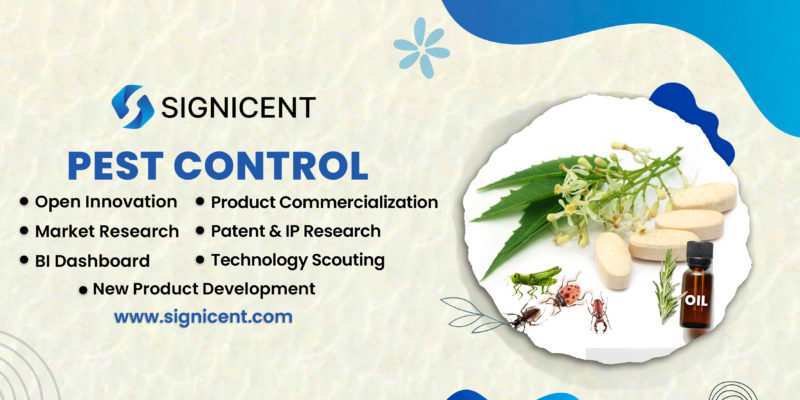
Revolutionizing Pest Control: The Role of Organic Pest Detection Technologies
In the realm of pest control, the integration of technology has paved the way for more sustainable and eco-friendly solutions. Organic pest detection technologies represent a significant leap forward, offering innovative methods to identify and address pest issues while minimizing environmental impact. Let’s explore the transformative role these technologies play in creating harmonious living spaces.
The Essence of Organic Pest Detection Technologies: An Overview
Organic pest detection technologies utilize advanced sensors, data analytics, and sustainable practices to identify and monitor pest activity. Unlike traditional methods that rely heavily on chemical interventions, these technologies prioritize eco-friendly approaches, aligning with the principles of organic and sustainable pest control.
Smart Sensors and Data Analytics: Real-Time Monitoring Precision
At the core of organic pest detection technologies are smart sensors and data analytics. These technologies enable real-time monitoring of pest activity, providing precise insights into the type, location, and severity of pest infestations. This data-driven approach allows for targeted interventions, reducing the need for widespread pesticide use.
Eco-Friendly Precision: Targeting Pest Issues Responsibly
Organic pest detection technologies excel in providing precise and targeted solutions to pest issues. By accurately identifying the specific pests present, these technologies allow for tailored responses. This precision minimizes the environmental impact of pest control measures, ensuring that interventions are only deployed where needed, preserving the balance of ecosystems.
Non-Intrusive Monitoring: Minimizing Disruption to Ecosystems
Unlike traditional pest control methods that may disrupt ecosystems, organic pest detection technologies operate in a non-intrusive manner. The use of smart sensors and data analytics enables remote monitoring without the need for constant physical presence. This minimizes disturbance to the natural environment while effectively managing pest issues.
Reducing Dependency on Chemicals: A Sustainable Approach
One of the key advantages of organic pest detection technologies is their ability to reduce dependency on chemical pesticides. By providing early and accurate detection, these technologies enable prompt interventions, often employing alternative methods such as biological controls or eco-friendly repellents. This shift towards a sustainable approach contributes to healthier ecosystems.
Integrated Pest Management (IPM) with Technology: A Synergistic Approach
Organic pest detection technologies seamlessly integrate with the principles of Integrated Pest Management (IPM). This synergistic approach combines various pest control strategies, including biological controls, cultural practices, and technology-driven solutions. The result is a holistic and effective pest management strategy that prioritizes environmental sustainability.
Benefits for Agricultural Practices: Precision Farming for Pest Control
In the realm of agriculture, organic pest detection technologies offer significant benefits. Precision farming techniques, enabled by these technologies, allow farmers to monitor and manage pest issues with unparalleled accuracy. This targeted approach not only improves crop yield but also reduces the environmental impact of conventional pesticide use in agriculture.
Residential and Commercial Applications: Safer Living and Working Spaces
Beyond agriculture, organic pest detection technologies find valuable applications in residential and commercial spaces. Smart pest detection devices can be integrated into building infrastructure, providing continuous monitoring and early detection of pest issues. This proactive approach enhances pest control measures, creating safer and healthier living and working environments.
Educational Outreach: Fostering Awareness and Adoption
The integration of organic pest detection technologies also plays a role in educational outreach. Creating awareness about the benefits of these technologies and their role in sustainable pest control is essential. Educational programs and outreach initiatives help communities understand the value of adopting eco-friendly pest management practices.
Looking to the Future: A Greener Path for Pest Control
As organic pest detection technologies continue to evolve, the future of pest control looks increasingly green. The ongoing development of smart sensors, artificial intelligence, and sustainable practices promises a landscape where pest control is not only effective but also environmentally responsible. Embracing these technologies signifies a commitment to a greener and healthier future.
In conclusion, organic pest detection technologies represent a transformative force in the field of pest control. By leveraging smart sensors, data analytics, and sustainable practices, these technologies provide precise, eco-friendly, and effective solutions. The adoption of organic pest detection contributes to a harmonious coexistence with nature while addressing pest issues responsibly.
For more information on Organic Pest Detection Technologies, visit homeinharmonia.com.
